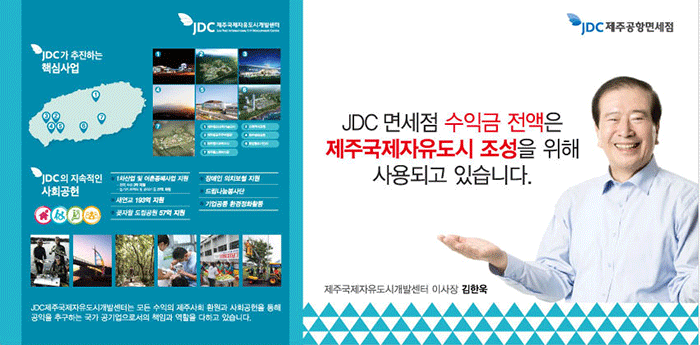An exclusive interview with Chairman Kim Han-wook of JDC
The Jeju Free International City Development Center (JDC) is moving full steam ahead for the globalization of Jeju. The JDC is performing a pivotal role in the development and growth of the economy of the Jeju Island Province of the Republic of Korea boldly carrying out various key industrial projects of the Province. They include the establishment of a Global Education City, an Integrated Resort Estate, a Myth and History Theme Park, Health-Care Town, an Advanced Science Park and Duty-free Shopping Centers. The JDC is thus becoming the center of the economy of Jeju boldly carrying out various key strategic businesses, covering a wide range of areas including education, tourism, rest and recuperation, medicine and science. The Korea Post recently interviewed Chairman Kim Han-wook of the JDC for his views on various key projects and topics of Jeju, inducing foreign investments and financial stability of the provincial government. Excerpts from the interview follow:
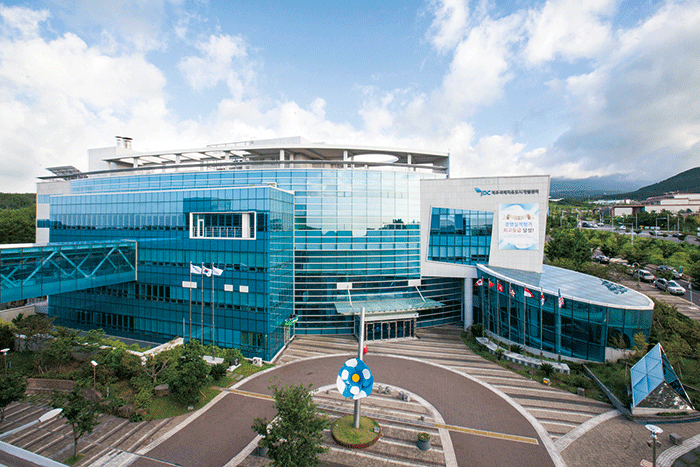
Question: After your inauguration as the chairman in 2013, you announced a new management policy called ‘C to S’. What is managerial outcome since the announcement of the policy?
Answer: With the conviction that ‘we cannot survive with no change and innovation’, we have been strenuously pushing forward core ongoing strategic programs and social contribution activities by maximizing performance through improvement of organizational structure, retrenchment and changes since we announced the Change to Survive (C to S) since announcement of the policy. Since my inauguration, we have been concentrating efforts on three areas of retrenchment, improvement of systems and attraction of private investments.
We first tried to save budget by reducing the number of outsourcing programs to 33 from over 70. As for improvement of regulatory systems, we found difficulty in operating duty free shops at the airport and ports due to restrictions of tax exemption for purchasing goods in value of over US$400 and allowing to buy commodities to foreign visitors in ages over 19 years. Meanwhile, duty free stores for foreign visitors at airports in Okinawa, Japan and those at airports in Hainan, China provide tax exemption benefit for purchasing commodities in value of over 200,000 yen (approx. US$1,740) and 1.6 million won (approx. US$1,400), respectively. After consistent request to the government, we could amend regulations, allowing shops to offer tax exemption benefit for buying commodities worth over US$600 and lowering the age limit to less than 19 years, resulting in significant outcomes in improving financial soundness.
In attracting private investment, we successfully attracted US$2 billion from Landing International Development Limited in Hong Kong and Genting Singapore PLC. These are unprecedented cases of luring private investments in the history of tourism in Korea. Thus the C to S policy brings change to financial soundness, preparing for the foundation for new creation.
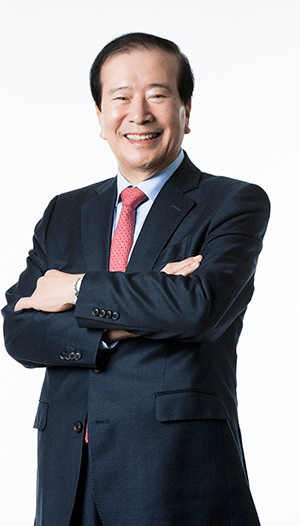
Q: The JDC has been exerting effort to enhance global competitiveness through various programs. What are your core programs?
A: The JDC is managing businesses in varied areas, including education, tourism, recuperation, healthcare and advanced science. Major programs are as follows:
1) Jeju Global Education City
The education city attracted three international schools, including North London Collegiate School (NLCS), a prestige school of the United Kingdom, Branksome Hall Asia, a prominent girls’ school in Canada, and Korea International School (KIS), the first public international school in Korea. And St. Johnsbury Academy (SJA) in the United States is expected to establish its branch school here in 2017. The attraction of prominent international schools from foreign countries is designed to accommodate demand for studying abroad by establishing an international education hub. Having already produced graduates for two years, 100% of graduates of NLCS Jeju were admitted by world’s top universities, such as Oxford, Cambridge, Stanford and Yale. International schools in Jeju provide 13-year courses ranging from kindergarten to high school, and the JDC plans to lure prominent foreign universities in the future. Also, it plans to operate various incidental businesses in the Jeju Global Education City such as introducing and selling indigenous products of each country by dividing the city into American Zone, British Zone, Canadian Zone and Korea Zone.
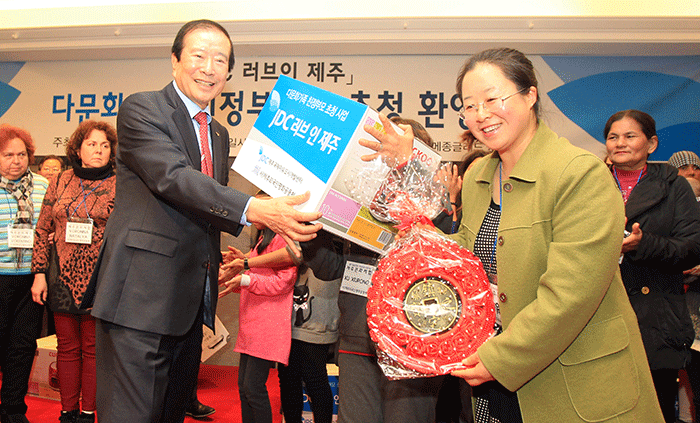
2) Myths and History Theme Park
As the largest resort complex in Northeast Asia, the Myths and History Theme Park successfully attracted investments from Landing International Development Limited in Hong Kong and Genting Singapore PLC. As of the end of 2015, these two companies invested a total of US$500 million in the Park. With the goal of completing construction of a part of the ‘Resort World Jeju’ in the Park by the end of 2017 and open the entire facilities of the Resort by April 2019, we will provide full support to carry out construction works on schedule. In this Park, which is located in a region that can be reached in 30 minutes from Jeju International Airport, we will build World Theme Park, a hotel, Oriental and European resort and an aerospace museum. When its construction is completed, the Myths and History Theme Park is expected to significantly contribute to generating new jobs. The number of regular employees is expected to reach over 6,500 persons, and this will increase to over 10,000 persons when combined with outsourced workers.
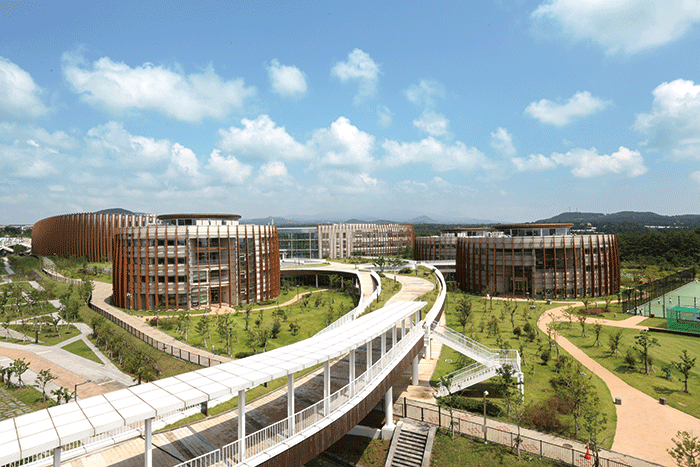
3) Duty Free Shops
After the amount of tax exemption limitation was raised from US$400 to US$600, sales at 3 duty free shops at the Jeju International Airport and ports are continuously growing. Despite the shock of the Middle East Respiratory Syndrome (MERS) in 2015, sales at these duty free shops grew from approximately US$320 million in 2014 to approximately US$410 million in 2015. They aim to increase sales to approximately US$452 million in 2016. Employees at these duty free stores are proud of returning their profits to Jeju City for its development.
4) Jeju Healthcare Town
The Town is consisted of the Wellness Park, a healthcare and recuperation complex, Medical Park that provides advanced medical services, and the R&D Park, a medical research complex that conducts research projects in biotechnology and medical science areas. And a large hospital for foreign patients will be established by Greenland Holding, the 42nd largest company in China. Major medical departments of this hospital will include plastic surgery, skin care, anti-aging and medical checkup. The Healthcare Town is expected to be constructed by 2018.
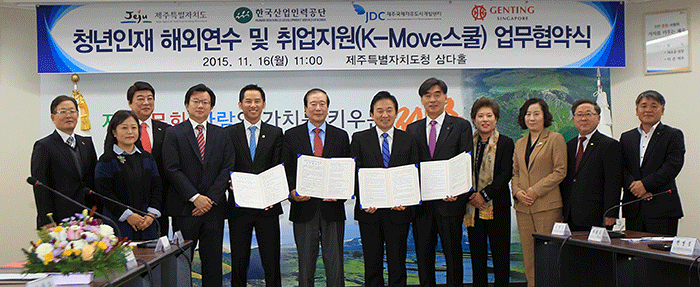
5) Jeju Science Park
Aiming to transform Jeju into an advanced science and technology base from the first and third industry-oriented region, the JDC constructed the first science and technology park in 2010, accommodating information technology and life science companies. As of the end of 2015, the Park is established as a successful science and technology complex that has over 130 companies with more than 1,700 employees. We are providing these firms in the Park with full support to help them generate a variety of outcomes such as collaboration for joint research projects between companies in Korea and other countries through mutual exchange with science and technology complexes in other countries, including Germany, Singapore, the United Kingdom and Taiwan. When the second science and technology park is completed in 2018, we expect that Jeju will take lead in generating future value.
Q: What are future development plans of the JDC?
A: Though Jeju Province is an island, Jeju has nearly no industries associated with the ocean. We will prepare new plans to develop ocean-related industries and businesses. Now that we got over financial difficulty, we are ready to create new jobs. We will develop various projects for concentrating more resources on creating jobs for young generations by expanding programs of training leaders in the tourism industry. As a public corporation, the JDC will fulfill its role by maximizing performance of core projects, exploring future programs, improvement of management system and enhancement of operational efficiency.
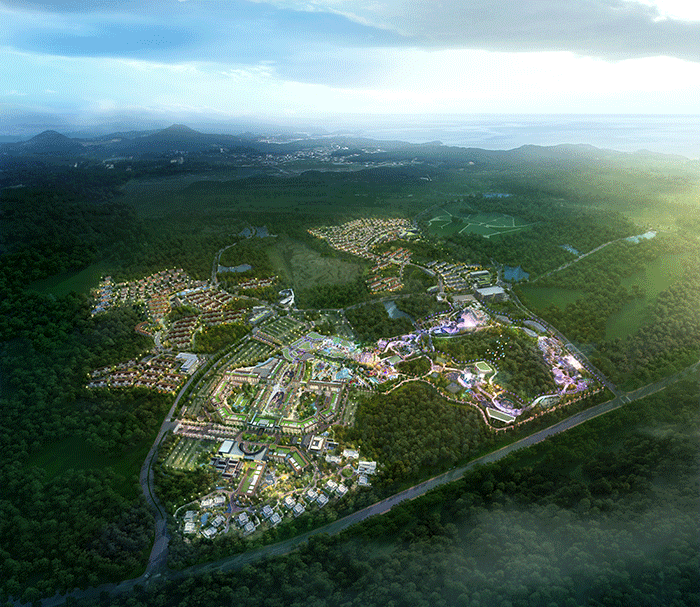
When all of planned projects of the JDC are completed, it is expected to employ 22,000 workers in total. And we developed human resource development program and sent the first 60-member group to Singapore in search of employment opportunities at companies there after foreign language training for 3 months. We will implement the second and third human resource development programs in 2016. Programs of the JDC are contributing to strengthening competitiveness of regional industry and improvement of quality of tourism industry as well as to regional and national progress.
Jeju is geographically advantageous as it is located between Japan and China and at the gateway to the Pacific Ocean with incomparably beautiful natural environment. And as Jeju is furnished with all convenience facilities such as educational, tourism, medical, port and airport facilities, programs and businesses of the JDC for building globalized Jeju are expected to continuously flourish.
